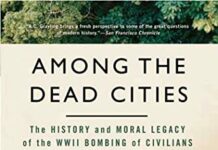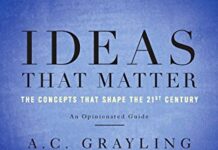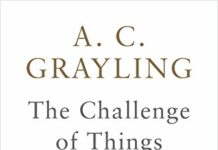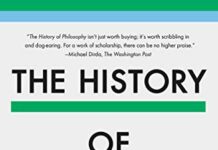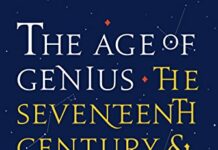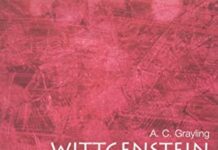
Ebook Info
- Published: 2010
- Number of pages: 308 pages
- Format: PDF
- File Size: 1.22 MB
- Authors: A. C. Grayling
Description
An impassioned defence of the civil liberties and the rule of law in the face of increasing pressure for ever greater ‘security”A rollicking defence of Freedom and Enlightenment in the style of Tom Paine or William Godwin’ Spectator’The even-handed tone of philosophy professor AC Grayling’s latest book does not lessen the intensity of its polemical content … Grayling underlines the seriousness of today’s threats to our liberties’ Metro”The means of defence against foreign danger historically have become the instruments of tyranny at home.” James MadisonOur societies, says Anthony Grayling, are under attack not only from the threat of terrorism, but also from our governments’ attempts to fight that threat by reducing freedom in our own societies – think the 42-day detention controversy, CCTV surveillance, increasing invasion of privacy, ID Cards, not to mention Abu Ghraib, rendition, Guantanamo…As Grayling says: ‘There should be a special place for political irony in the catalogues of human folly. Starting a war ‘to promote freedom and democracy’ could in certain though rare circumstances be a justified act; but in the case of the Second Gulf War that began in 2003, which involved reacting to criminals hiding in one country (Al Qaeda in Afghanistan or Pakistan) by invading another country (Iraq), one of the main fronts has, dismayingly, been the home front, where the War on Terror takes the form of a War on Civil Liberties in the spurious name of security. To defend ‘freedom and democracy’, Western governments attack and diminish freedom and democracy in their own country. By this logic, someone will eventually have to invade the US and UK to restore freedom and democracy to them.’In this lucid and timely book Grayling sets out what’s at risk, engages with the arguments for and against examining the cases made by Isaiah Berlin and Ronald Dworkin on the one hand, and Roger Scruton and John Gray on the other, and finally proposes a different way to respond that makes defending the civil liberties on which western society is founded the cornerstone for defeating terrorism.
User’s Reviews
Reviews from Amazon users which were colected at the time this book was published on the website:
⭐This book is about the undermining of civil liberties in the West. In the guise of War on Terror the British and US governments are working fast to restrict these hard-won rights. From Grayling’s viewpoint the misnamed War on Terror should more appropriately be called a War on Civil Liberties. Consequently, he talks about a purposeful destruction of civil liberties. In “Towards the Light” from 2007, Grayling provides the historical background for the struggle between the forces of Enlightenment and its foes, between liberalism and conservatism. He warns us not to be complacent and take our civil liberties for granted. In the UK there isn’t even a written constitution guaranteeing basic liberties. It is now for example legal to detain anyone for 28 days without charges. Gordon Brown recently proposed to expand this to 42 days. The Magna Carta from 1215 allows for no more than 48 HOURS. Think about it.Grayling presents his arguments with seeming ease and simplicity. He keeps his philosophical learning in the background which makes “Liberty in the Age of Terror” eminently readable without sounding superficial. Part I, which takes up more than half of the book, deals mainly with the assault on civil liberties and human rights in the light of terror and immigration, while Part II consists of “debates” with contemporary commentators. Taking the Enlightenment as starting point, he then moves from Isaiah Berlin and Ronald Dworkin to Tzvetan Todorov. He turns a critical eye towards Roger Scruton, Slavoj Zizek, John Ralston Saul, and John Gray. The latter merits a particularly sharp dissection, causing his whole cardboard construction to come tumbling down. The clear-eyed dismantling of Gray’s anti-humanist views makes one wonder how on earth anyone could have taken them seriously in the first place. Grayling also takes note of the fashionable rejection of the idea of progress and anything utopian. It’s a cheap point to assert that it’s hopeless to strive for a perfect society. Admittedly, there are those “blue-print utopians” (Jacoby) who envisage such an airtight world, but seeking a social life with more justice, emancipation, and equity doesn’t mean you harbour totalitarian ideas. There is a clear distinction between meliorism and utopianism, between improvement and perfectibility. This line of thought has also been pursued recently by among others Susan Neiman, Tzvetan Todorov, and Russel Jacoby.No believer of the Clash of Civilizations, Grayling rather seeks a solution to the threat of terrorism in a dialogue with the majority of moderates both in the West and East. According to him the most important matter in the end is that terrorism happened in part because people “perceive themselves as ignored, contemned, slighted and unjustly treated” (95). But by curbing people’s civil liberties instead of encouraging an open discussion – including dissent as a vital part of any real democracy – governments are putting the cart in front of the horse. By creating a society of insecurity and suspicion we in fact do the work for the terrorists. As Benjamin Franklin said: “Those who would sacrifice liberty for security deserve neither” (109).In the appendixes Grayling reprints the Universal Declaration of Human Rights (also included in “Towards the Light”), the European Convention of Human Rights, the Human Rights Act, plus laws and measurements that have reduced liberties in the UK and US in recent years. Here the reader is presented with a bird’s-eye view of the impairment of the civil liberties we take, or perhaps rather took, for granted.
⭐I found the first half to be redundant–yes, civil liberties should be protected and fear should not get in the way of that.The second part is more compelling. Grayling looks at several thinkers’ views of enlightenment, democracy and humanism (not really civil liberties directly though) including Dworkin, Todorov (best chapter I thought), Saul and Gray. Some he agrees with (Dworkin, Todorov), some he doesn’t. One problem I had was that the ones he disagreed with I wasn’t sure if they were respected thinkers because their arguments, as presented by Grayling, didn’t seem particularly compelling. So, they seemed to be straw men, but that may just be my ignorance on British thinkers.The book’s title does not seem to capture Grayling’s text which seems more interested in convincing readers that humanism’s values are our best hope.
⭐The increasing intrusion of surveillance in our post-9/11 world has alarmed civil libertarians in the United States and elsewhere. With “Liberty in the Age of Terror” Professor Grayling seeks to raise the threat level by examining the pervasiveness of that surveillance in British society and the corrosive effect it has. Grayling clearly seeks to uphold the values of Western society that derive from the Enlightenment, particularly freedom of speech, which he holds as the foundation for all other freedoms. Grayling rails against the willingness of the public and the media to give up freedom in exchange for security, an inequitable trade if ever there was one. Taking on the commonly heard refrain of “why worry if I have nothing to hide” argument Grayling warms persuasively of the potential for `mission creep’ where surveillance can be used to target political enemies, as during the Nixon Administration. That argument is most convincing particularly because it has happened in the past and is likely to happen again in even seemingly non-authoritarian `democracies’. Readers should be reminded of the warning by Benjamin Franklin that “They that can give up essential liberty to obtain a little temporary safety deserve neither liberty nor safety.” More to the point, once freedoms are given up they are almost never easily reinstated.Unfortunately it appears few people are listening to the warning of civil libertarians such as Dr. Grayling, no matter how timely, compelling and cogent their arguments may be. You could argue that Grayling isn’t exaggerating the threats to freedom and liberty but if anything is understating the dangers to them. In the United Kingdom the Law Lords have stopped a number of laws that would have eroded civil liberties further, such as the national identification register and extended detention periods for terror suspects, but elsewhere much in the way of liberties and freedoms are being willingly sacrificed in the name of national security. Hopefully people will read this and wake up to the new reality threatening our rights. Better that than future generations wondering why we failed to heed the warnings Grayling provided.
⭐A timely book written with passion and insight but at points quite repetitive, light on detail and convoluted. Some of the chapters feel like essays pulled together into a book rather than one cohesive well argued book.Grayling is clearly alarmed at the erosion of individual liberty taking place in the UK and equally alarmed about the lack of public resistance to this encroachment. The book is clearly aimed at the general public, the language is simple, obvious rather than obscure practical examples are used (often repetitively the Danish cartoon protests) there are no references at the end of the book.The book starts with Grayling’s impassioned defence of Free Speech, human rights and very brief overview of the history of how these civil liberties were won in the first place. J.S Mill is widely quoted at the start, as is Benjamin Franklin. Grayling also raises the question of how a written constitution might better protect the rights of it’s citizens from new bills being passed.Grayling acknowledges that the threat from terrorism is real, though not a new thing and far less perilous than WWI or WWII. New powers have been raised to counter this threat though they are also used to tackle other forms of illegal crime and illegal immigration. Graying is concerned about mission creep, these new powers and technologies being used for other purposes besides combating terrorism, though he is also unhappy that general liberties should be given up at all in order to fight terrorism. Islamic extremism Grayling sees as a reaction to our liberal, open, tolerant, progressive society, these forces seek to either change our society or punish us for not changing. Ironically by constructing a less free, less tolerant, less open society we are doing the terrorists bidding for them. One of his strongest points is that measures put into place during WWII were temporary where as these new powers are not. A problem though with Grayling’s position is that he does accept the government can interfere in the civil rights of citizens if it believes these activities may be putting others at risk (e.g. the indoor smoking ban). From this point it would be easy to build the case that much government activity is aimed at tackling terrorism and other kinds of criminality which place other citizens in danger and are thus justified. A chapter follows on identity, which Grayling sees as a major cause of terrorism, people who can only identify with one group or identity instead of recognizing they belong to a multitude of identities. Religion Grayling sites as a prime example of how this often leads to violence.The next chapter looks at social justice, the writer demands great action taken to resolve inhumane or unfair treatment of minorities around the world, he feels some people are often driven to terrorism when regular justice is denied to them, e.g. the IRA. There is also a few pages discussing why Grayling believes in equality when it comes to how the law is practiced and who should vote but also the need to acknowledge and make allowance for differences in people too. An athlete and an elderly lady shouldn’t be given the same amount of food and it would in fact be cruel to do so.Free speech is next brought up, Grayling believes intrinsically in this right, he feels that any position may be argued against or ridiculed but that it should never be banned or silenced by censorship. Free speech Grayling points out underpins every aspect of a healthy flourishing society. He has little time for the Danish Cartoon protesters. I imagine though he means those who seek to use violence or the threat of it to shut down newspapers, rather than simple protesters making their objections felt. He also believes firmly in a free press which can print whatever they please no matter how trivial or stupid the story is.Tolerance is also tackled, again Grayling believes almost universally in tolerance except in tolerating intolerance. The chapter bizarrely ends though with objections to the collection of private data which has nothing really to do with the chapter heading.The war on terror is tackled in just 4 pages, Grayling believes slightly oddly that less dependence on oil with reduce the likelihood of terrorist attacks. I think the issue is a bit more complicated than that personally.Grayling next sets out what he’d do to tackle terrorism, this chapter really should have been added to the last one though. He starts by accepting there is a long tradition of peace and tolerance in Islam and that mainstream Islam rejects the actions of Al-Qaeda though he does feel that there is a clash of values happening between liberal west and conservative east. He doesn’t really have any answers though in how to stop terrorism, he seems to hope that in the end ordinary citizens rather than government will be more effective at rooting it out rather than bombs and bullets.CCTV is another target for the book, Grayling notes that we are one of the most watched countries in the world. He is not impressed with the argument of if you’ve done nothing wrong, you should have nothing to hide line, how would these people like government CCTV installed inside their homes Grayling wonders? Without CCTV more police would probably need to be employed onto the streets though to make sure the public stay safe.The book doesn’t really try to develop a utilitarian argument either that civil rights and freedom should trump the right to security and stability. Grayling makes it clear he’s no anarchist and does believe a minimum level of law and order, as well as centralised government. Supposing the removal of CCTV lead to an increase in crime and a drop in the number of criminal prosecutions. Grayling would no doubt argue that would be the price we’d need to pay to live in a society where Big Brother isn’t watching you. But for both the victims of crime and the wider society surely this would also add a greater degree of distress than living in a society where crime was lower. But there isn’t any real argument here, no case by case comparison of whether mass surveillance and data collection is effective in tackling crime and terrorism. Grayling’s central premise is that liberty is more important than security, he then builds his argument forward from there but I was disappointed he didn’t try and justify that starting point. His argument also sways quite a bit between practicality and principle, for example he warns us that ID cards would be expensive and impractical but then makes it clear that he objects to them out of principle in fact and it doesn’t matter whether they’d work or not.Overall there’s some important issues raised in this book but the structure is really messy and some chapters have little to do with the title and no connection to the other chapters. I read Grayling’s Among the Dead Cities: Is the Targeting of Civilians in War Ever Justified? So I know he can carefully examine historical evidence and debate ethical problems with great skill but I’m afraid this book just fell a little short for me in these respects.
⭐In 2008, he wrote a philosophical history of the establishment of western freedom, a series of hard-won battles, to create the world as we know it.In this new book, he focuses more sharply on the current and modern dangerous to that freedom; having written that, many people will be thinking of terrorists of every political and religious hue, both of which Grayling considers. Another group may spring less quickly to mind – the politicians and police charged with the role of protecting the public. Grayling considers the many ways police and politicians in the US and UK have taken measures to protect their publics from terrorists threats but in doing so, have restricted their civil and personal liberties in fundamental ways.While many accept this as the nature of the beast and necessary in our current age, others (Grayling included) consider that, by responding in these ways to tragic but irregular acts of terrorism, the politicians and police are doing the terrorists’ bidding in our everyday events, changing our lives and the laws under-pinning our civilisation forever.Grayling’s two texts, this and “Towards the Light” (Bloomsbury, 2008, ISBN 978-0747592990) make excellent companions, both highly recommended.A less philosophical but no less interesting text on a similar theme – the erosion of the West from within – is Bruce BAWER’s, “While Europe Slept” (Doubleday, 2006, ISBN 9780385514729); he explores the ways in which Muslim communities growing in the West are challenging and altering civil liberties to maintain their way of life. Governments anxious to appear tolerant to new people, racial-equality, multi-racism and multi-culturalism (even to their extreme, radical elements), are accommodating these new attitude and values, including attitudes and values contrary to our own, thereby altering the roots of our own civilisation.Plants starved of their roots die; so too with civilisations.
⭐AC Grayling eloquently condemns and brings to our attention how our civil liberties are being eroded under the pretext of the ‘War on Terror’. He points out that many of the invasive laws in the UK were brought into being before the terrorist catastrophes of 9/11, such as the Terrorism Act and the Regulation of Investigatory Powers Act of 2000. Grayling does point out how 9/11 has made things worse with even more irrational, draconian, covert and intrusive laws being passed – very much a victory for the illiberal terrorists who crashed the planes and carried out subsequent attacks in Bali, Madrid and London. Now we are all potentially sleeping terrorist timebombs.Another of Grayling’s strengths is to show that radical Islamism is very much a product of the liberal West, as it is a violent reaction against it by people who have been exposed to western liberal education and lifestyles. However, Grayling does not adequately criticise the weaknesses of the political left and anti-war movements, who come up with the over-simplistic arguments that the war in Iraq was about oil (which Grayling agrees with) and that the wars the UK is fighting in Afghanistan and Iraq are inextricably responsible for terrorist atrocities carried out in the West or against Western tourists in Bali or MumbaiThe central weakness of Grayling’s thesis is his belief in legalistic measures – he supports the arbitrary and draconian smoking ban; believes libel is an adequate legal redress for ‘false’ allegations – he should note how wealthy foreign celebrities like Brad Pitt and Angelina Jolie, thanks to the UK libel laws, can sue British newspapers even though they are not UK citizens or residents. On a broader note, his support for an International Criminal Court does not come with any questioning of the rights of Western powers to intervene in foreign conflicts e.g. Yugoslavia, and does not examine the possible motives and interests of Western powers (the very people who set up bodies like the ICC) in taking sides in these particular conflicts. That is not to say that the idea of all ‘war criminals’ being brought to justice isn’t a bad thing, but somehow I can’t see the day when any American, British or Western leaders or officers will be put in the dock. He fails to see the ICC for what it is: a symbol of Western dominance, and an expensive, bureaucratic and undemocratic mess.In spite of the book’s flaws, its greatest strength is the polemic against the UK government’s undermining of our civil liberties and our privacy. However, Grayling falls short by advocating legalistic measures to problems that themselves have been exacerbated and brought into being by too much unwarranted legislation.
⭐Our politicians tell us that we are fighting wars in Iraq and Afghanistan to protect and preserve our freedoms and liberties. This book reveals just how many of our liberties and freedoms our governments are stealing from us.I think this is a book everyone should read and get motivated from!
⭐At first I didn’t have much hope for this book. It appeared to do a lot of scaremongering and doesn’t always provide entire context in its mission to get the message across. However it also provides some very valid arguments and points which similar sources had not highlighted to me. Worth a read definitely.
Keywords
Free Download Liberty in the Age of Terror: A Defence of Civil Liberties and Enlightenment Values in PDF format
Liberty in the Age of Terror: A Defence of Civil Liberties and Enlightenment Values PDF Free Download
Download Liberty in the Age of Terror: A Defence of Civil Liberties and Enlightenment Values 2010 PDF Free
Liberty in the Age of Terror: A Defence of Civil Liberties and Enlightenment Values 2010 PDF Free Download
Download Liberty in the Age of Terror: A Defence of Civil Liberties and Enlightenment Values PDF
Free Download Ebook Liberty in the Age of Terror: A Defence of Civil Liberties and Enlightenment Values
